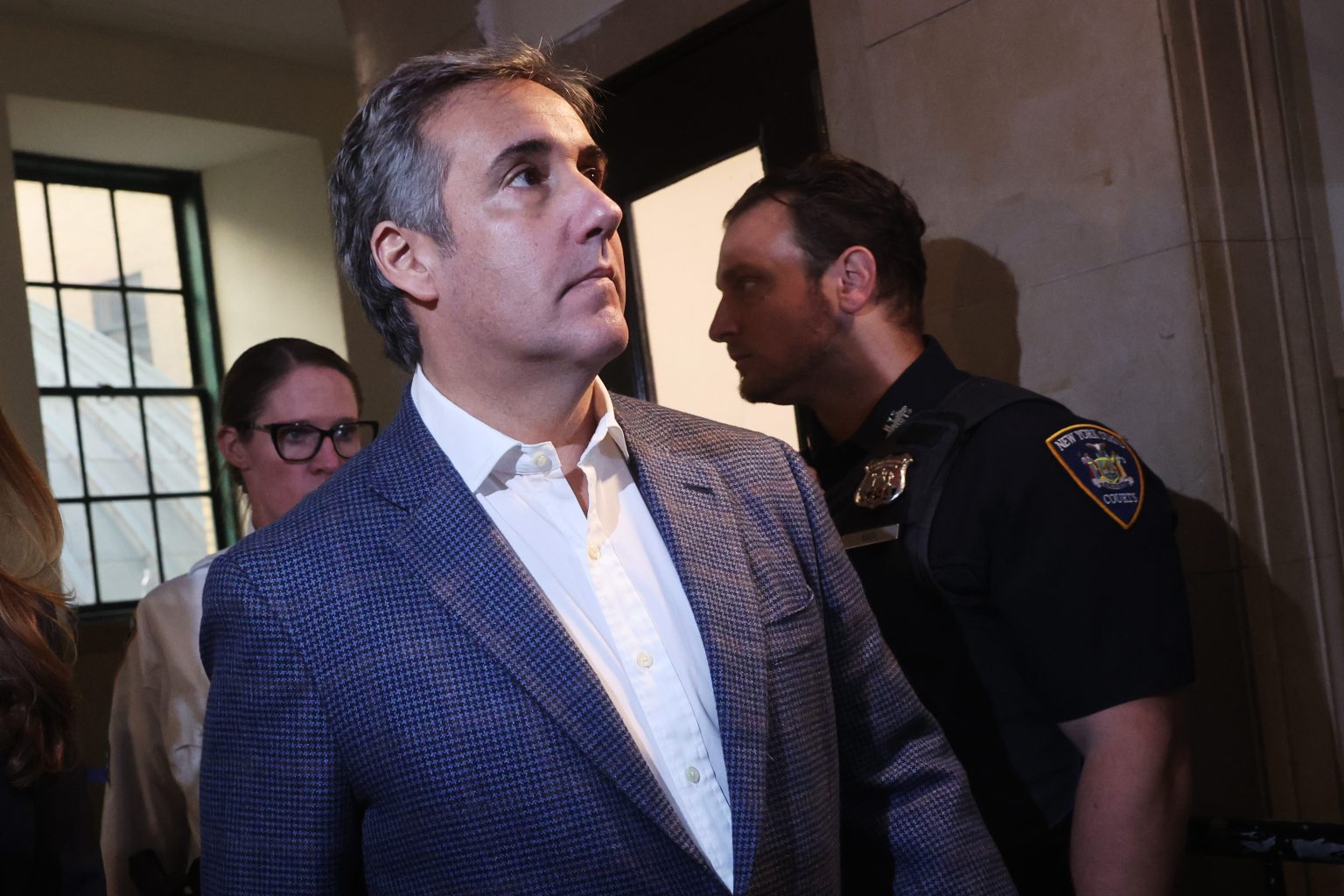Michael Cohen, former lawyer to Donald Trump, announced on Wednesday that he will no longer post about the former president on social media until after the trial wraps up. Cohen is set to be a witness in Manhattan District Attorney Alvin Bragg’s case against Trump, who has been charged with 34 counts including falsifying business documents related to a hush money payment allegedly made to adult film actor Stormy Daniels during his 2016 presidential campaign. Trump denies the allegations and has pleaded not guilty, accusing Bragg of targeting him for political purposes. Cohen, who previously served time in prison related to the alleged payment, has been posting frequently on social media to criticize Trump, but has faced criticism for his posts amid the trial.
Legal analysts have raised concerns about Cohen’s social media posts, particularly one where he addressed Trump in a derogatory manner. Joyce Vance, a former U.S. attorney, stated that as a prosecutor, this behavior from a witness is not ideal. However, some experts believe that Cohen’s negative remarks about Trump may not have a significant impact since he has already been vocal about his disagreements with the former president. Cohen is expected to testify that he made a $130,000 payment to Stormy Daniels, a key prosecution witness. In a plea deal in 2018, Cohen admitted to withholding information about hush money payments in coordination with a candidate for federal office, which he claimed was directed by Trump.
While Cohen has been active in posting about Trump online, the former president’s ability to comment on the trial has been limited by a gag order imposed by Judge Juan Merchan. This order prohibits Trump from posting about witnesses or the families of the judge or prosecutors, but allows him to post about Merchan and Bragg directly. Cohen’s decision to halt his social media posts about Trump until after the trial testimony may be an attempt to avoid further scrutiny or criticism of his behavior in relation to the case. The trial against Trump is ongoing, and both sides continue to make their arguments in court.
The case against Trump involves allegations of falsifying business documents and making hush money payments in an attempt to prevent Stormy Daniels from publicly discussing her alleged affair with Trump during his presidential campaign. Trump maintains his innocence and claims that the charges against him are politically motivated. Cohen’s role as a witness in the trial is crucial, as he is expected to provide key testimony regarding the payments made to Daniels. The outcome of the trial will have significant implications for both Trump and Cohen, as well as for the broader legal and political landscape in the United States. The decision to pause social media posts about Trump demonstrates Cohen’s awareness of the potential impact of his actions on the trial proceedings and his desire to maintain credibility as a witness.
As the trial continues, the public will be closely following the developments and testimonies presented in court. Cohen’s decision to refrain from posting about Trump on social media until after his trial testimony reflects a strategic move to avoid potential conflicts or criticisms that could impact his credibility as a witness. The ongoing legal battle between Trump and the Manhattan District Attorney’s office remains highly contentious, with both sides vigorously defending their positions. The outcome of the trial will likely have far-reaching implications for all parties involved, as well as for the broader legal and political landscape in the United States. The decision to limit social media activity related to the trial underscores the complexities and challenges faced by key witnesses, such as Michael Cohen, in high-profile legal proceedings.


